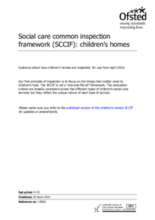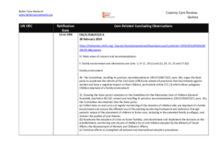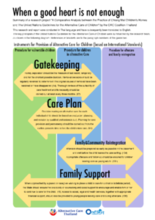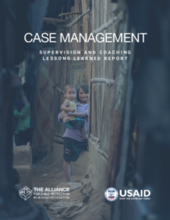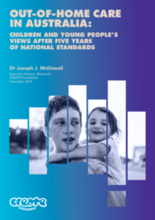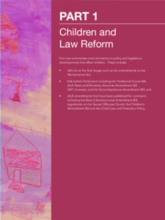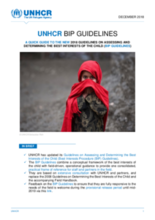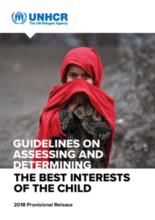Displaying 41 - 50 of 372
This inspection framework, developed by the UK's Office for Standards in Education, Children's Services and Skills (Ofsted), provides guidance about how children’s homes are inspected, for use from April 2019.
This book offers a comprehensive overview of the newest contributions to the literature on leaving care in relation to theory, in addition to the Theory of Emerging Adulthood, while also featuring cutting-edge research and best practices that support adjustment across a range of domains for this population.
This country care review includes the care related Concluding Observations adopted by the Committee on the Rights of the Child as part of its examination of Guinea’s periodic report to the Convention on the Rights of the Child.
This summary report presents the findings of a study comparing practices within residential children's homes in the Thai province of Chiang Mai with the Guidelines for the Alternative Care of Children.
The Case Management Task Force (CMTF) of the Alliance for Child Protection in Humanitarian Action commissioned this project to gather and draft key lessons learned on the Case Management Supervision and Coaching initiative. Key questions that the Task Force wanted to address included feedback on the interagency country collaboration, the effectiveness of the localization approach, the successes and challenges of roll-outs in the eight participating countries, and the impact on case management teams’ supervision practices.
This report details the findings of a survey of 1275 children and young people with a care experience with a diverse range of backgrounds in Australia
This Young Person’s Report is a snapshot of the main things from the survey. CREATE found that there were some areas that were working well and some areas that weren’t working well according to CREATE’s 2013 survey, the Government report, and this new report.
This chapter from the South African Child Gauge 2018 reviews the latest developments in law and policy affecting children in South Africa.
The BIP Guidelines combine a conceptual framework of the best interests of the child with field-driven, operational guidance to provide one consolidated, practical frame of reference for staff and partners in the field. This document provides a guide to the 2018 updated Guidelines, including what's new, why they were revised, and what's next.
These updated UN High Commissioner for Refugees (UNHCR) Guidelines provide guidance on determining the best interests of the child in decisions affecting children at risk, in particular children who are separated from their parents and families.

